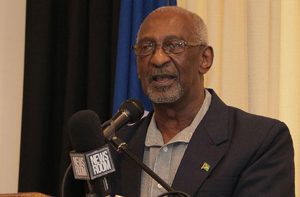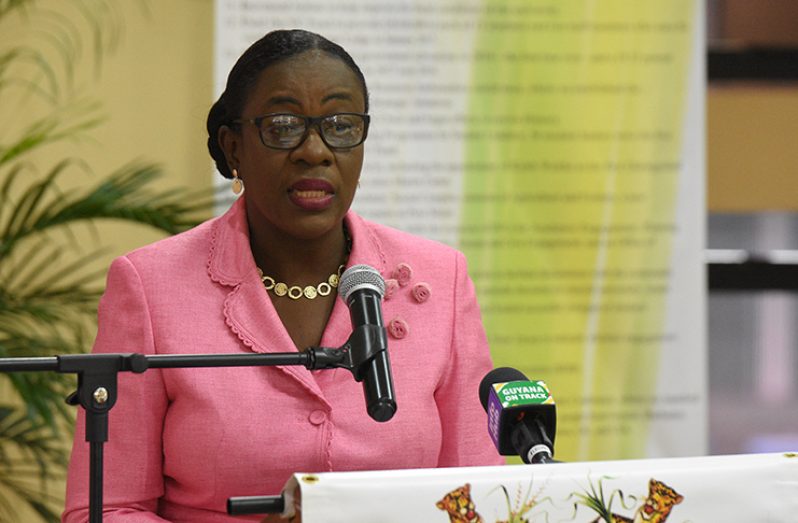THE Guyana Teachers’ Union has been officially invited by the Department of Labour, to a meeting next Tuesday at 14:00hrs (2pm) to begin the conciliation stage in the collective bargaining process, after negotiations between the union and the Ministry of Education (MoE) ended in deadlock.
The conciliation meeting was expected to first commence on Friday, after initial invitations were sent out late Thursday. However, the GTU responded to the Department of Labour yesterday, that it could not attend the meeting due to the short notice.
The GTU was already meeting with teachers in Berbice as part of its drive to whip up teachers’ support for the strike.
“There was a meeting, but what came out of that meeting is that with the absence of the GTU, we would have to adjourn. So come Tuesday we will meet again,” Scott explained.
Scott noted that the fact that he was present during the negotiations stage does not negate the need for this conciliation stage, as during negotiations, he was not there in the capacity of a conciliator.
“It would be wrong to say that that constituted conciliation just because we were there. I was there as a minister, with my advisers, it doesn’t mean I was there in a specific position,” Scott said.

“No one asked in what capacity I was there… had they asked I would’ve said I was there as a minister. I was basically there to observe. That was the two sides talking, putting things on the table, but not at the level of the Department of Labour. The MoE has only now written to us to become active participants in the talks, so we have only now been formally, as the Department of Labour, asked to participate. So the process has now been done the right way.”
MoE and GTU had two negotiation meetings earlier this month, on August 9 and August 16, when talks fell through, after both times the two sides could not agree on a way forward as it pertains to talks over salary increases, debunching monies and other financial and non-financial issues.
Following the August 9 meeting, on the insistence of its members, the GTU called for teachers to go on strike beginning on August 27 and continuing into the school term, which is officially scheduled to begin September 3.
The two sides became deadlocked after the MoE said it was offering a one-time pay out of $700 million for salary increases, and $200 million towards debunching; GTU said it was not enough, given the number of teachers to be paid.
The GTU has proposed an across-the-board increase in salary of 40% for 2016; 45% in 2017; and 50% in 2018, 2019 and 2020, be granted to all categories of teachers and teacher educators for the years 2016-2020. However, the GTU has indicated that they are willing to lower their ‘ask’, as long as whatever is offered addresses the issue retroactively.
Notwithstanding the impasse, Minister Scott remains optimistic that a resolution is forthcoming.

“All strikes in this country, everyone is always firm and inflexible, but then down the line it’s solved. There are several factors that lead up to a strike and they’re also several factors that are brought to bear on a strike that makes it disappear altogether, so there’s no such thing as inflexibility when you’re dealing with human nature, so that’s the situation,” Scott related.
In this conciliation stage, the Department of Labour will play the role of mediator.
“Conciliators are not the ones that must come up with plans, it must be the independent parties that must be able to say, to put on the table what is the position that each body is bringing to the table. We as the man in the middle have to examine both sides’ arguments and try to guide them in the way forward,” Scott described.
Should the conciliation process fall through, the next stage is arbitration, whereby an independent person or body will be appointed to settle the dispute.



.jpg)








